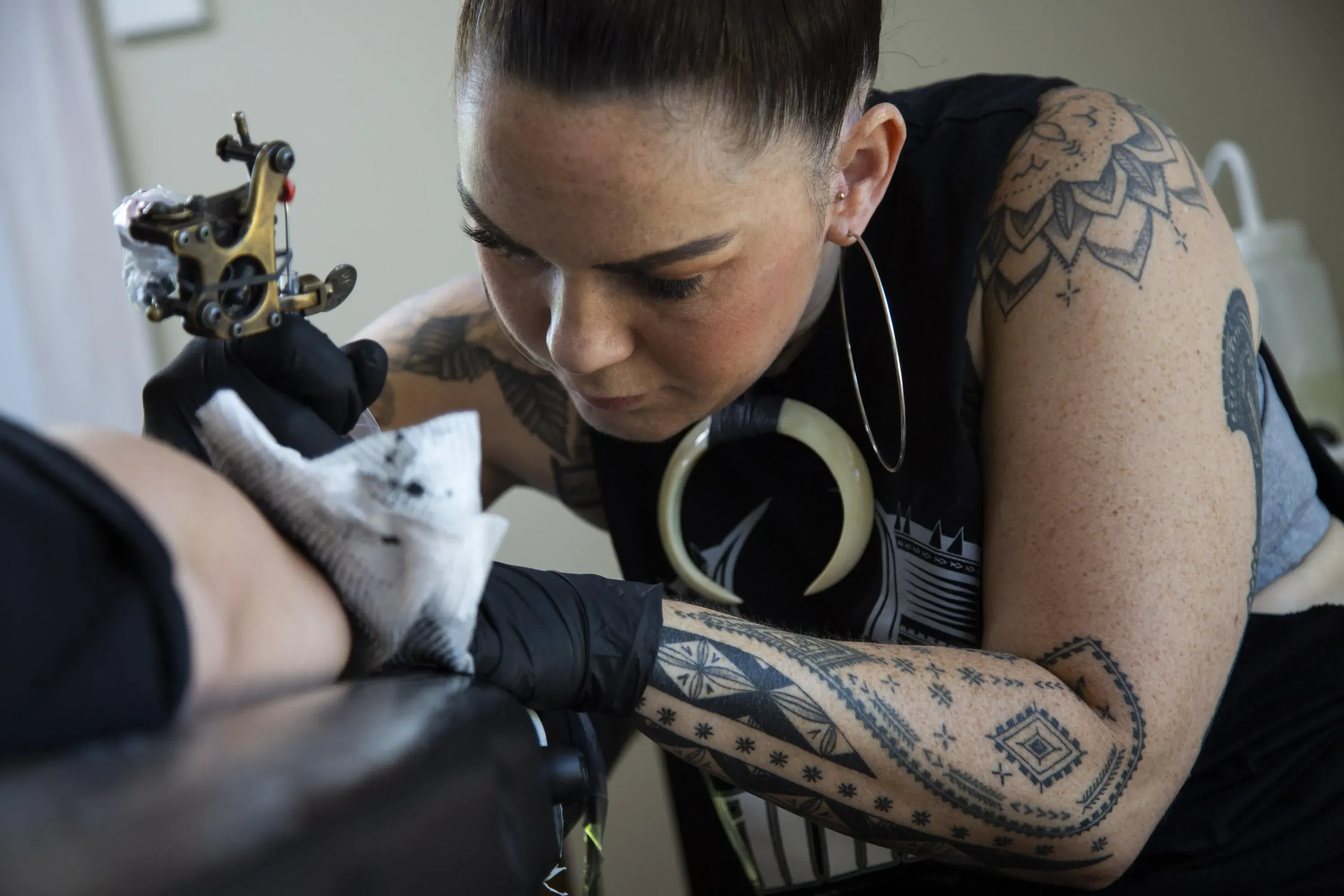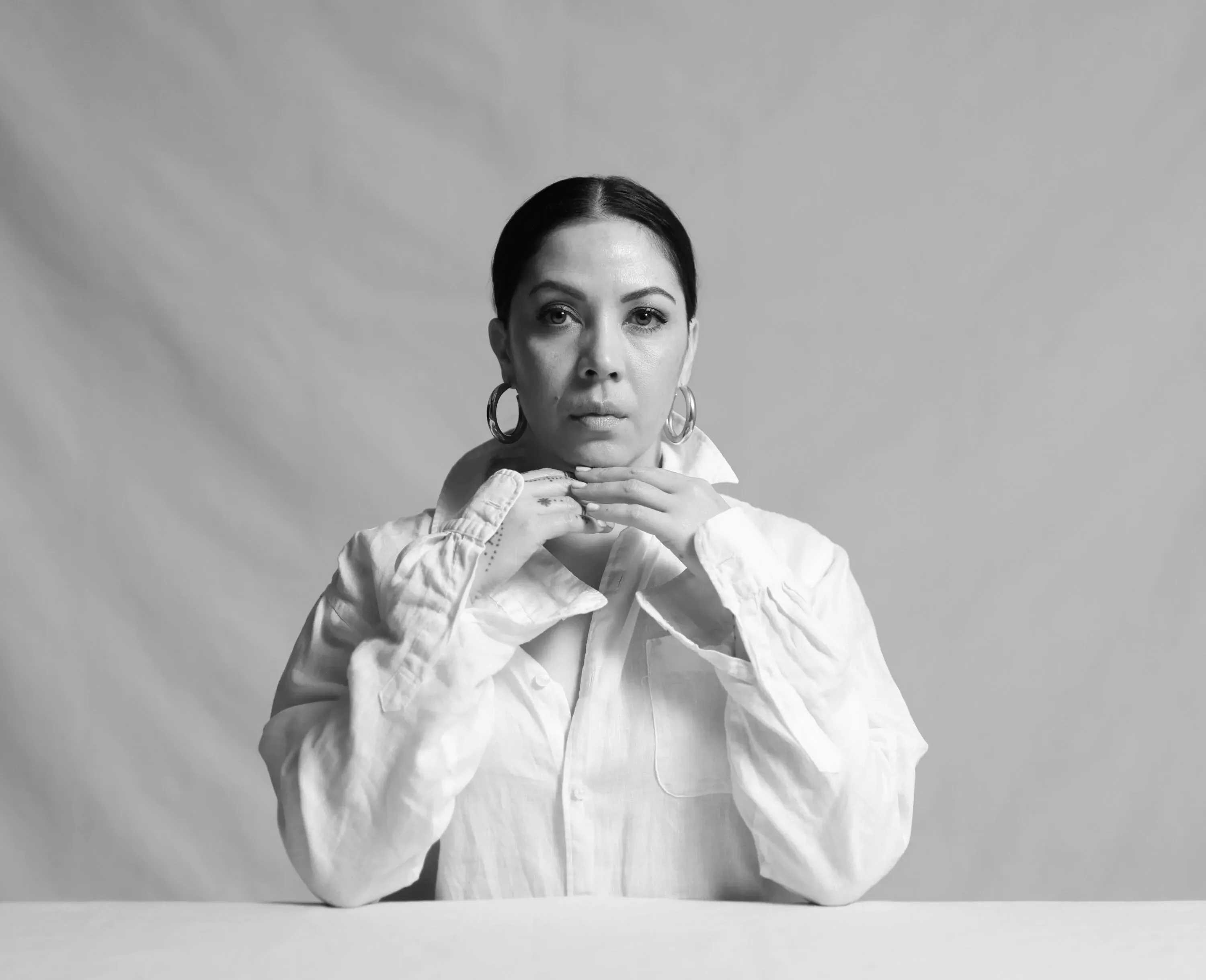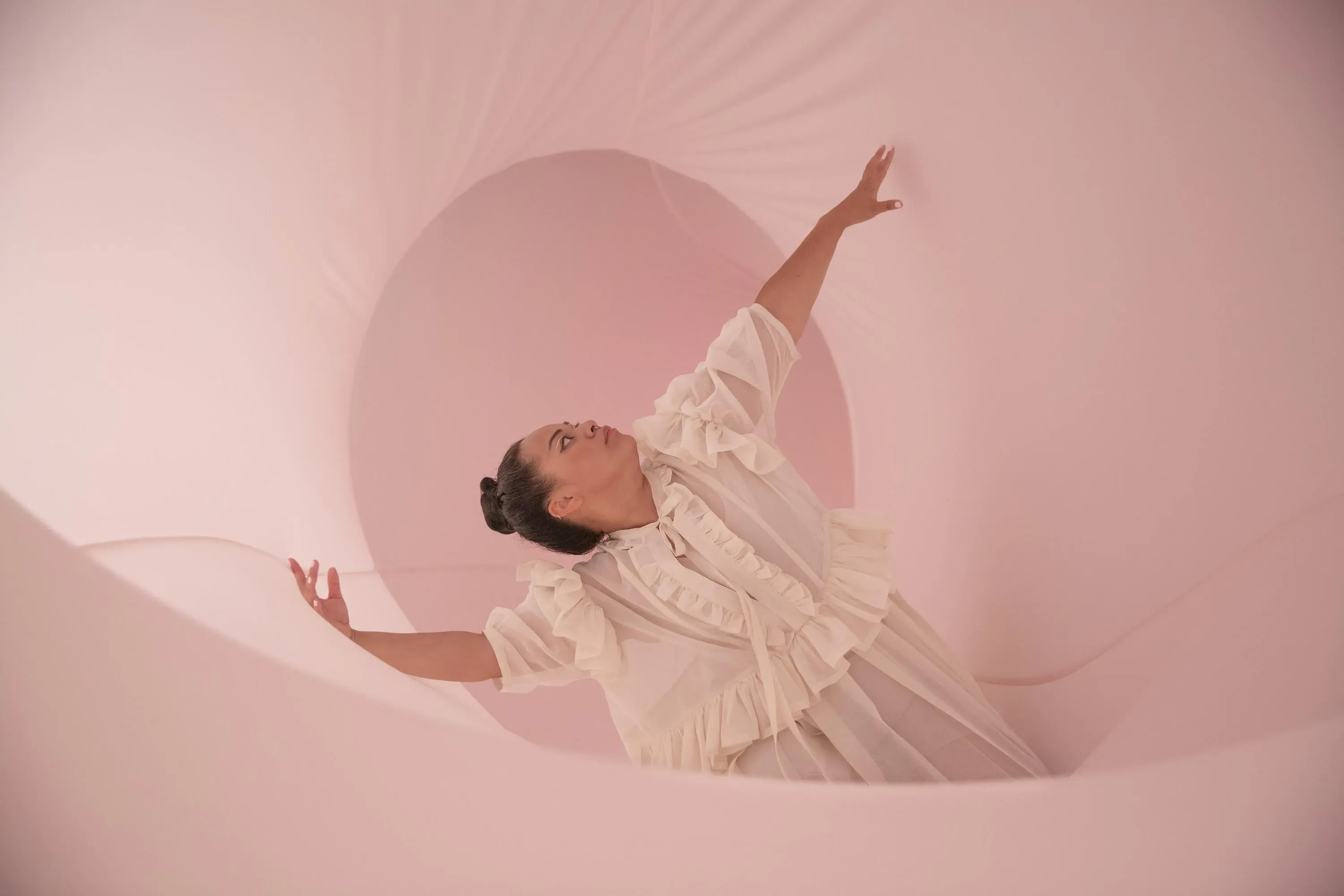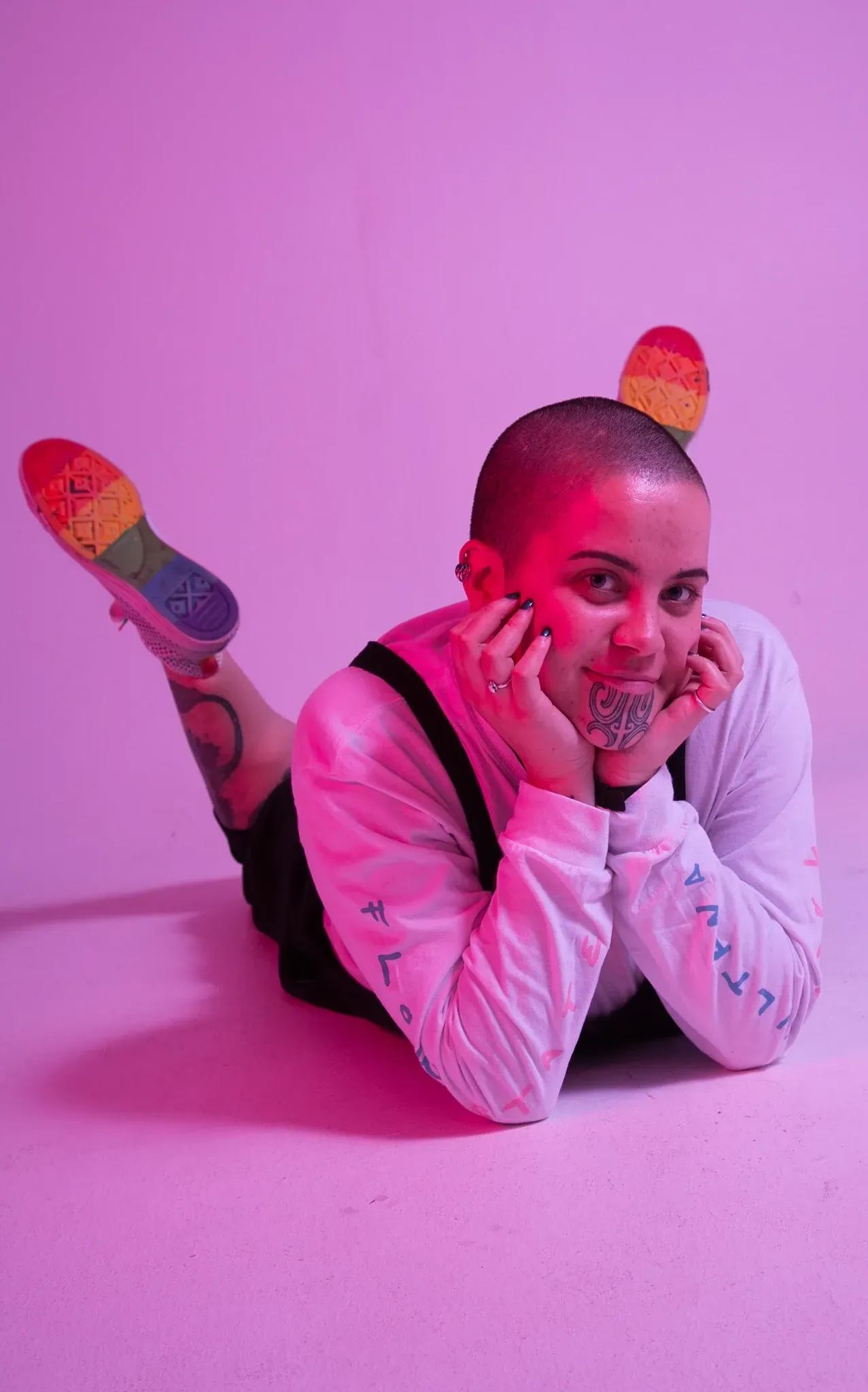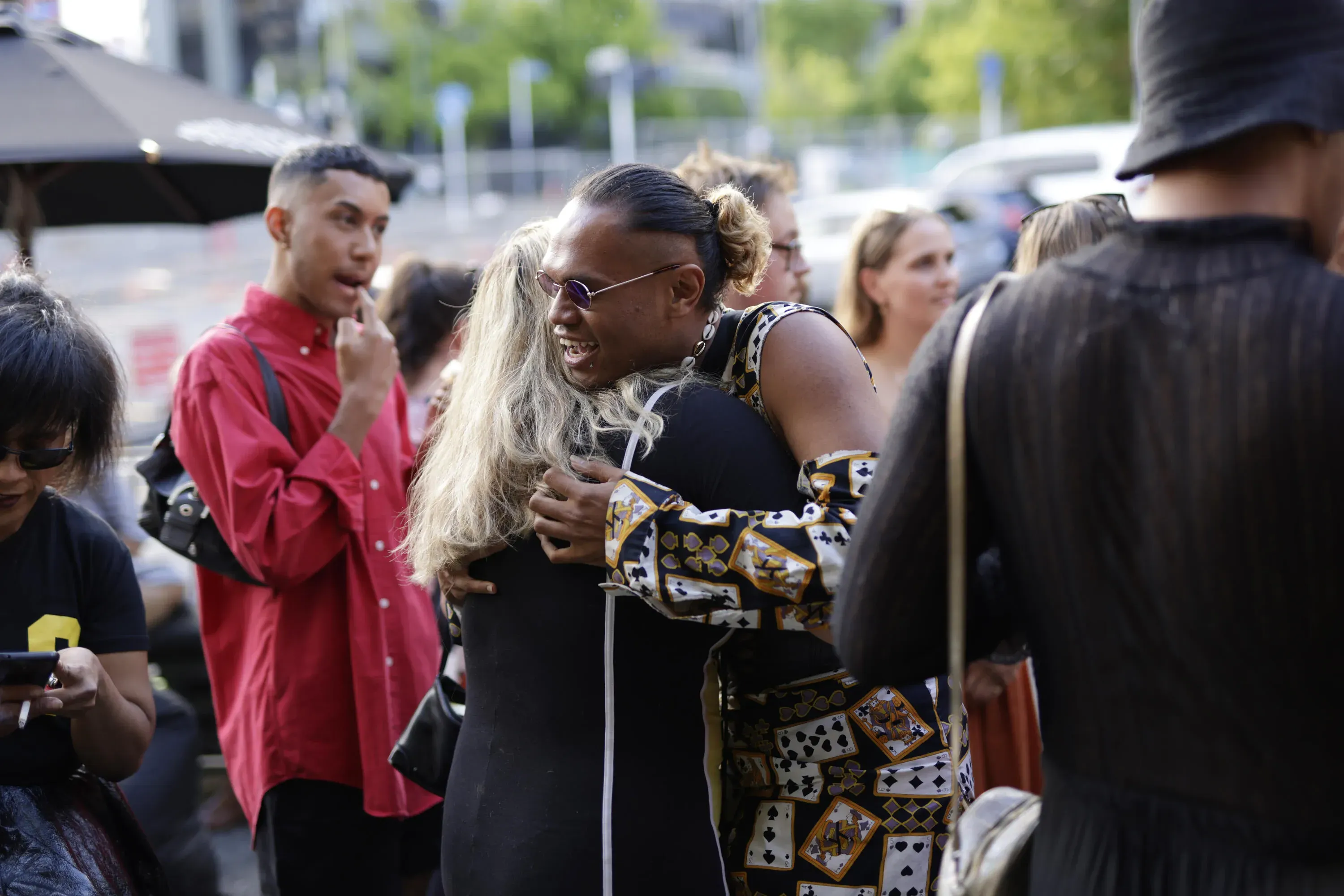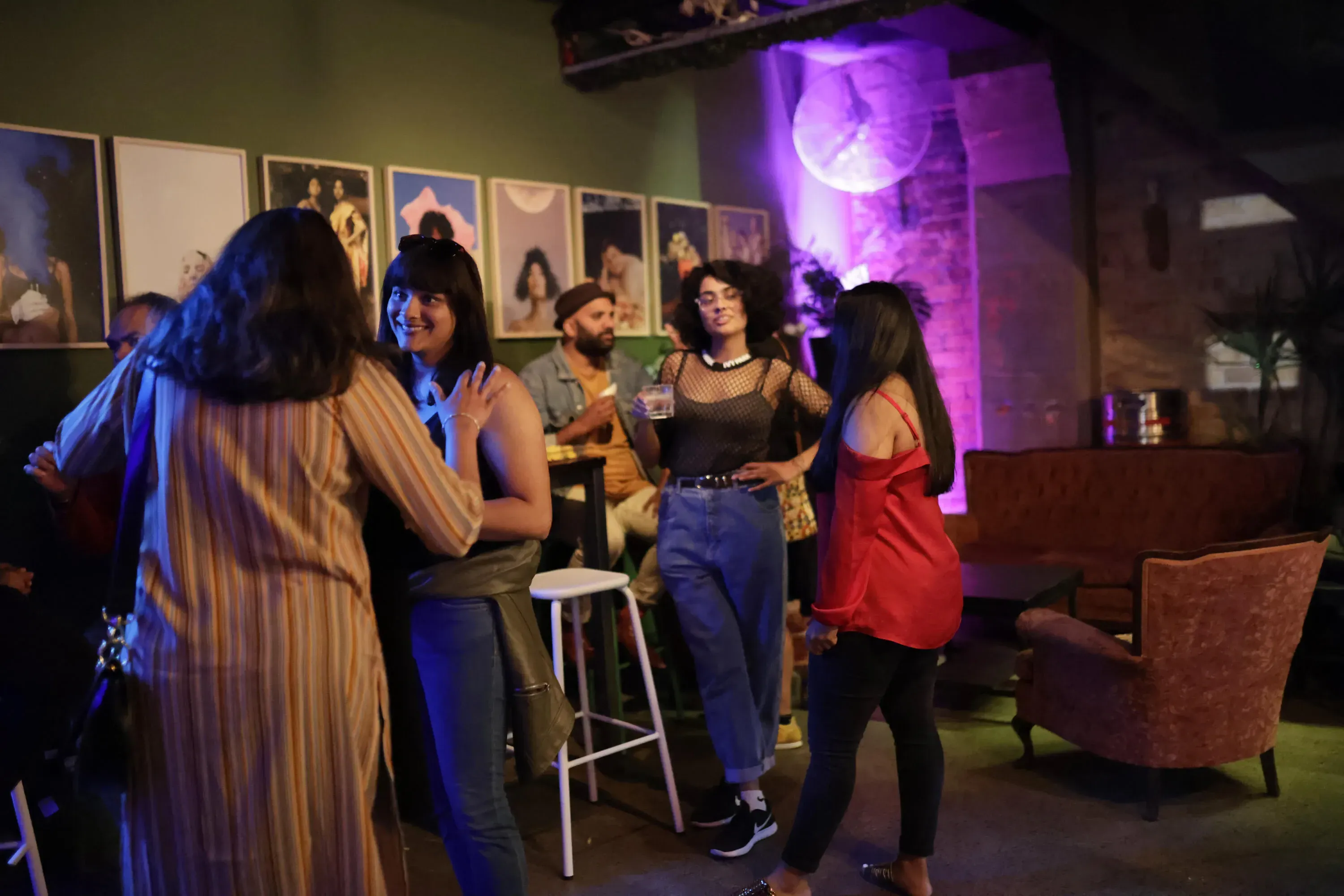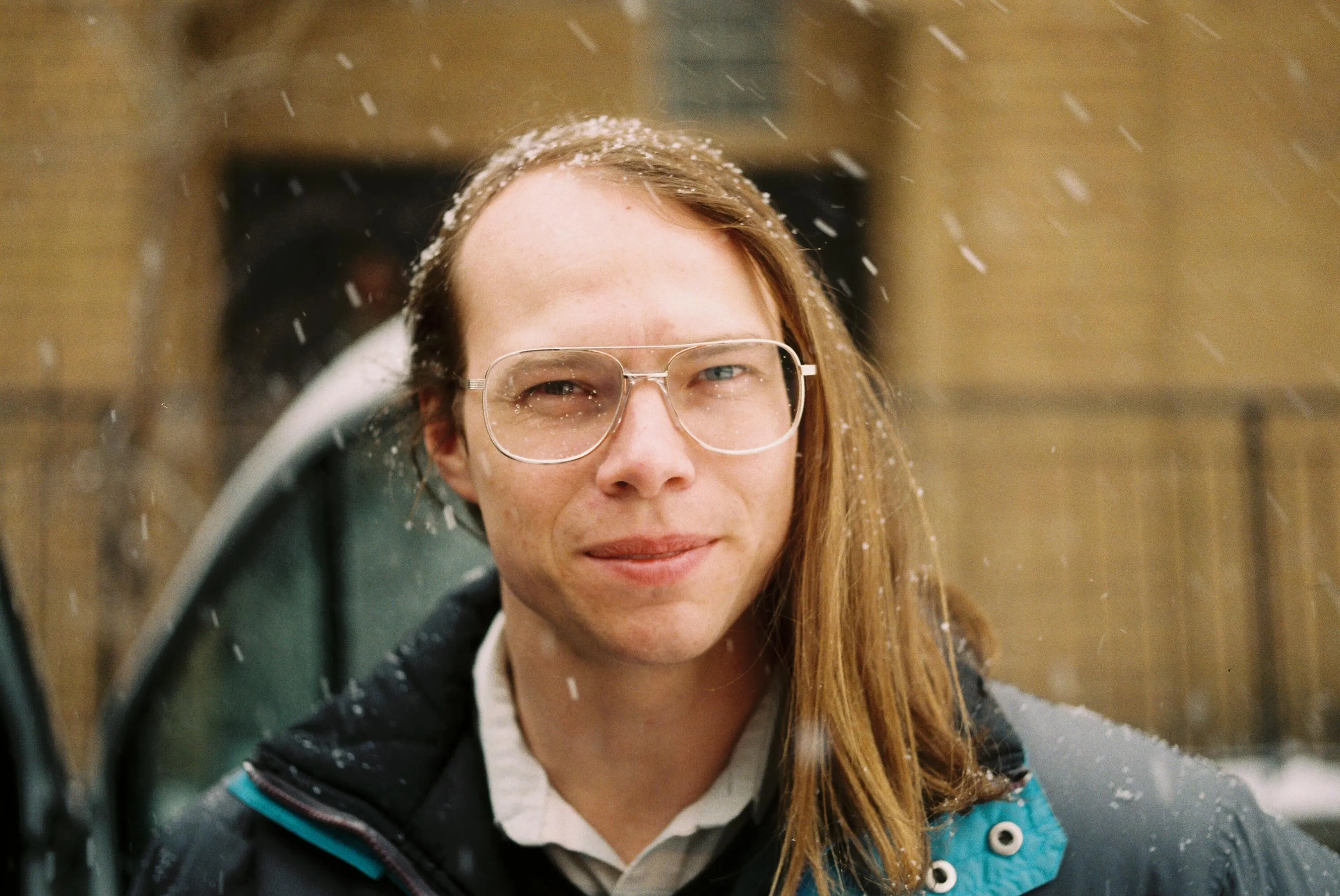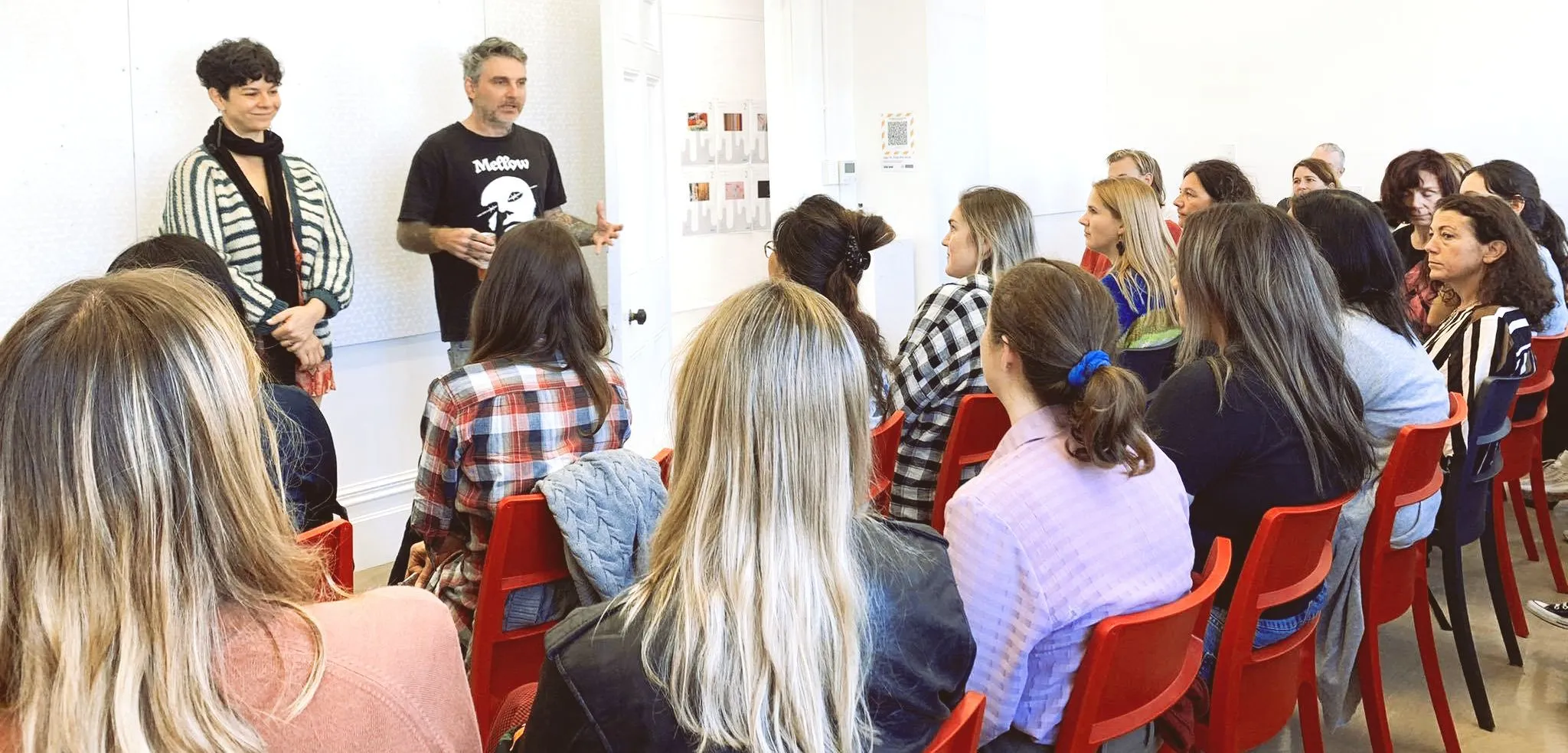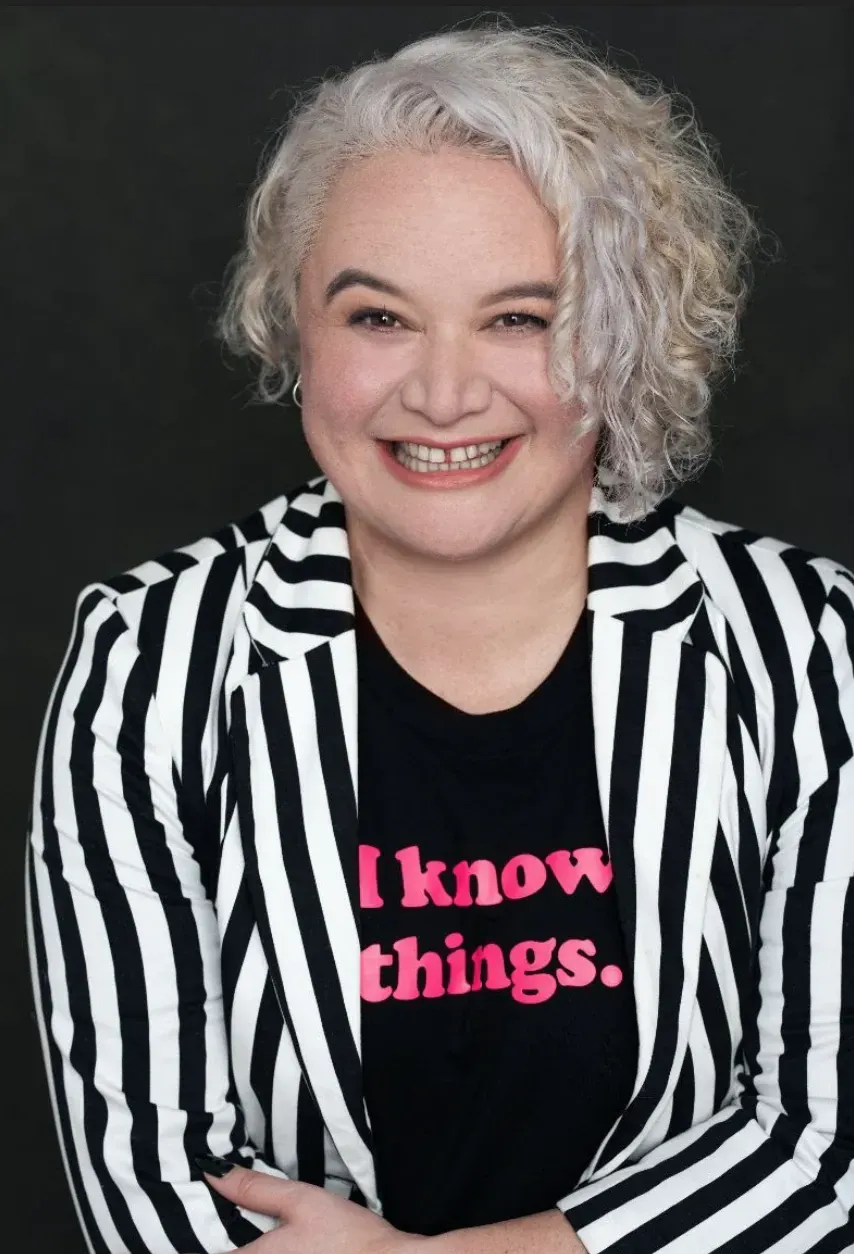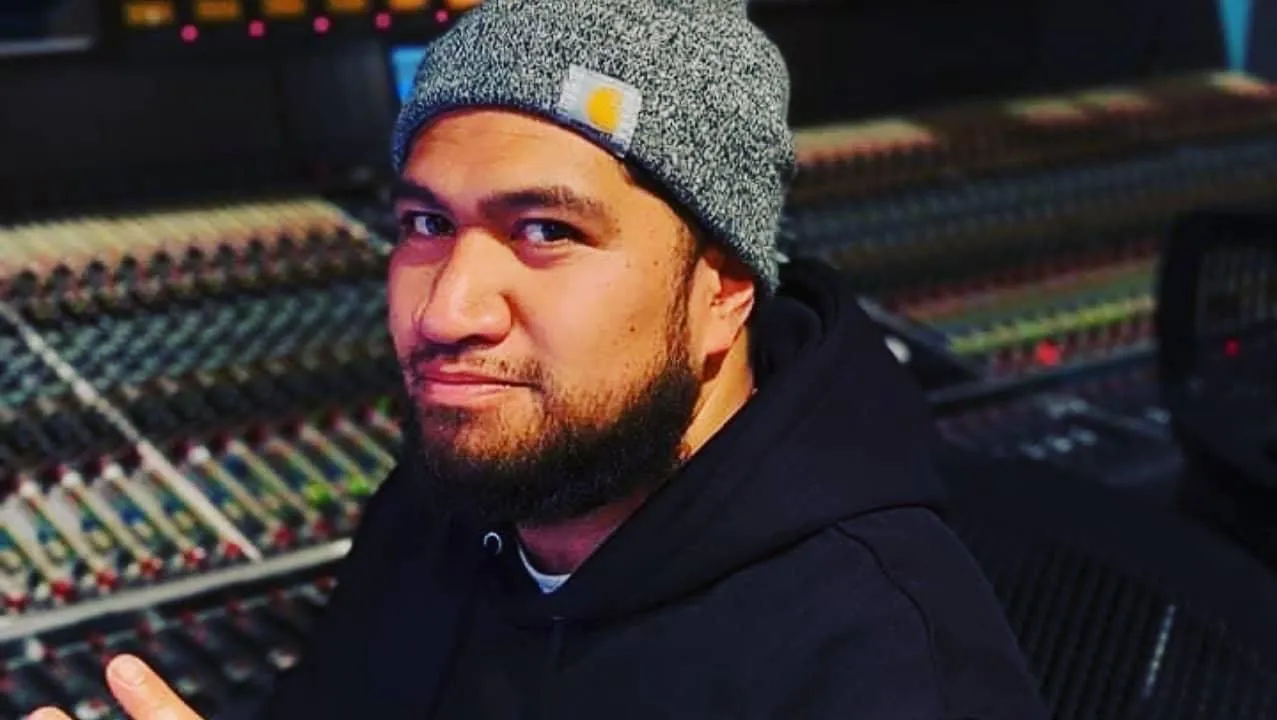Independent Creatives Need to be Heard - Now
Written by
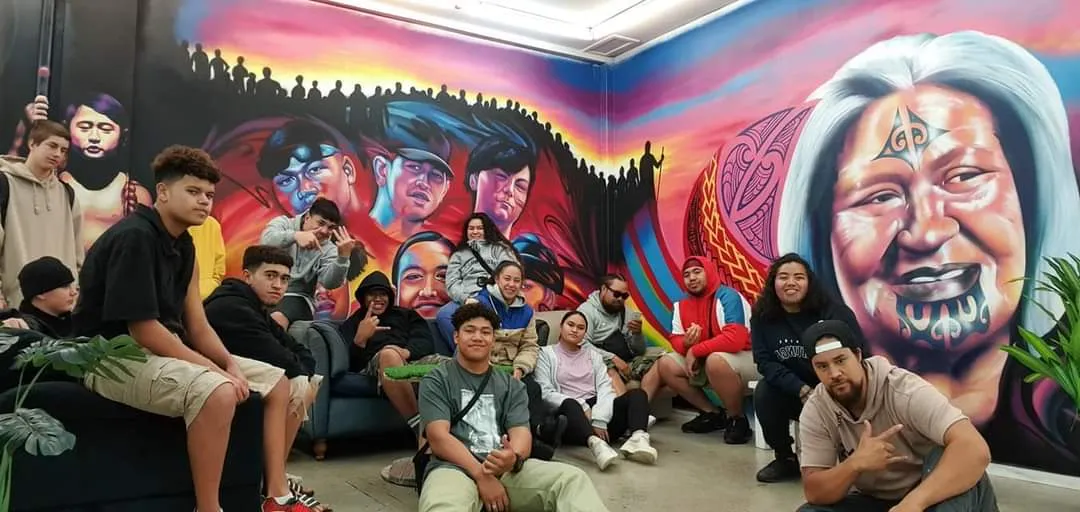
There’s a voice missing from this conversation.
Undoubtedly the biggest talking points in Aotearoa’s creative community this week have arisen from the announcement from Minister Carmel Sepuloni that help is finally on the way for the arts and culture sector.
It had to come - it’s been discussed in detail here on The Lowdown among other places during this draining Delta leg of the pandemic.
The $37.5 million coming from the COVID Arts and Culture recovery programme is broken down in detail here on The Big Idea with government, agency and leading sector figures.
Stuff turned the attention towards the $22.5 million set aside to provide confidence for cultural performances and events - speaking to those at the top of the New Zealand entertainment and events industries, while Minister Sepuloni talked through the funding on RNZ.
But that missing voice? You’d be forgiven for missing it, as it’s often overlooked, sometimes ignored.
The voice of the independent creative.
The ones whose work falls outside of the funding umbrella of large organisations.
Now, there’s always plenty of people talking about independent creatives - and in fairness, the rest of the sector has been vocal and steadfast in calling for support on their behalf, especially during Auckland’s current extended lockdown.
It’s time they got to speak for themselves.
While it was the smallest portion of yesterday’s announcement funding - the $5 million Cultural Emergency Relief Fund could perhaps be the most significant in directing money where it is desperately needed - the difference between staying afloat or doors and dreams shutting permanently.
The full details on applying for the fund won’t be known in full until Friday 1 October when applications open. The Minister’s office describes it as a last-resort fund to help individual creatives and organisations at risk of not being able to operate viably within eight weeks, that won’t receive support from the sector agencies, and where other government supports are not meeting the unique needs of the cultural sector.
As an independent live performance artist as well as Executive Director of Basement Theatre, Cat Ruka (Ngāpuhi, Waitaha) knows what it’s like to put your heart and soul into the arts and not feel heard.
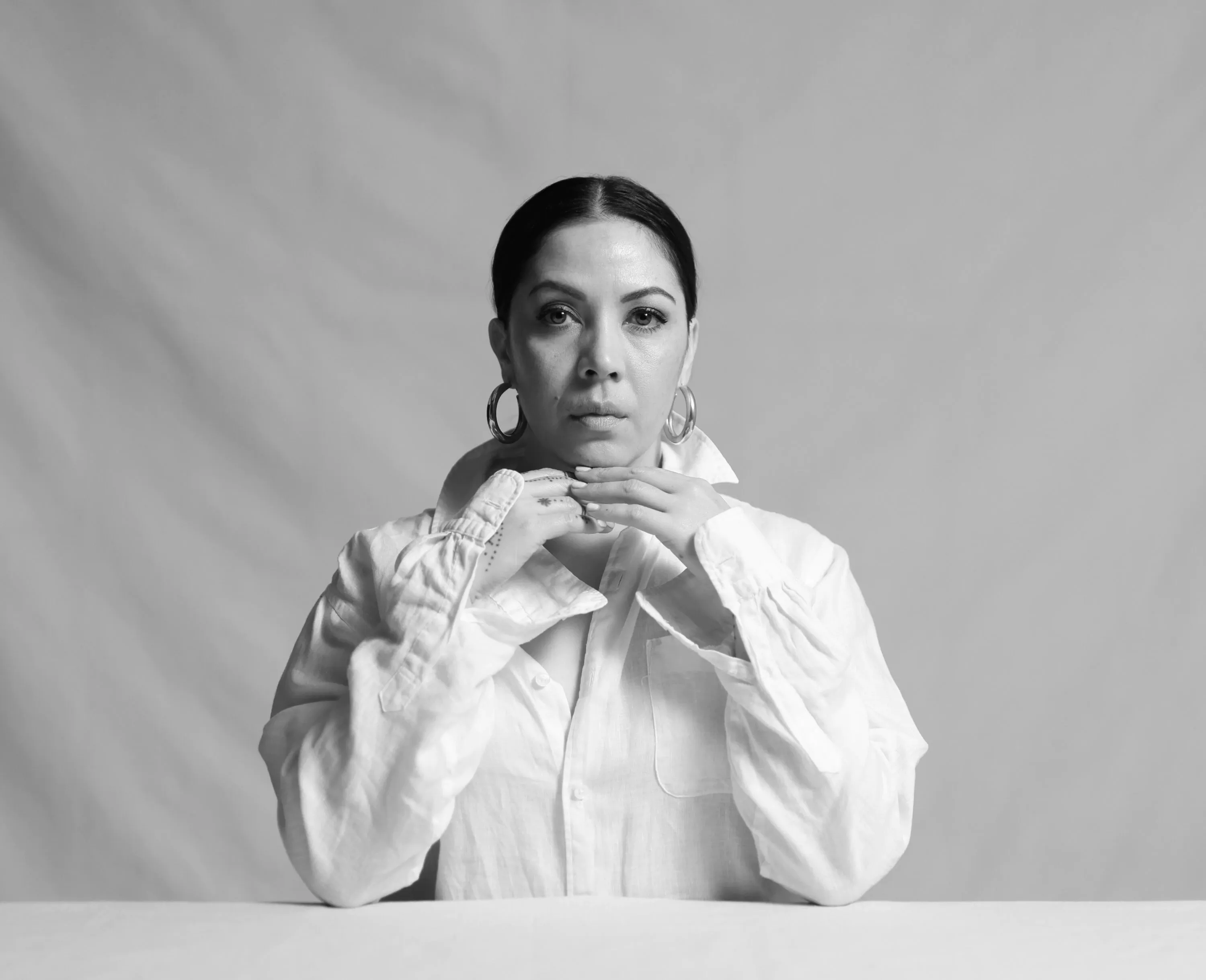
Cat Ruka. Photo: Ralph Brown.
Ruka was part of the small group of arts directors that sat with Manatū Taonga Ministry for Culture and Heritage to advocate for these emergency relief funds. “I was there to represent independent artists,” she tells The Lowdown.
“To prepare for the meeting, I gathered stories from a range of different artists so I could go in well informed and from a place of being tika. The stories that came through were alarming but also not surprising to me - and that’s the cooked part - severe financial hardship has become so synonymous with being an independent artist that we’ve come to accept it.
“Well I’m here to agitate that acceptance and fight for our communities until meaningful change is achieved and trust me, I won’t stop until that happens.
“So what’s my reaction to the announcement? It’s awesome news, I feel very grateful that we were heard, and I respect the work of Hon. Carmel Sepuloni and the Ministry.
“It’s really just the start of what is needed to address the extreme hardship our independents are facing though, and I’m hoping that the criteria around these funds will be as accessible as possible to our most vulnerable.”
While it’s too early to pass judgment on that - you can’t blame independent creatives for having their guard up. They’ve been burnt before.
Content creator Shelley Te Haara (Ngāpuhi) is excited by the news, with the quickly followed caveat, “I just hope it can help everyone.”
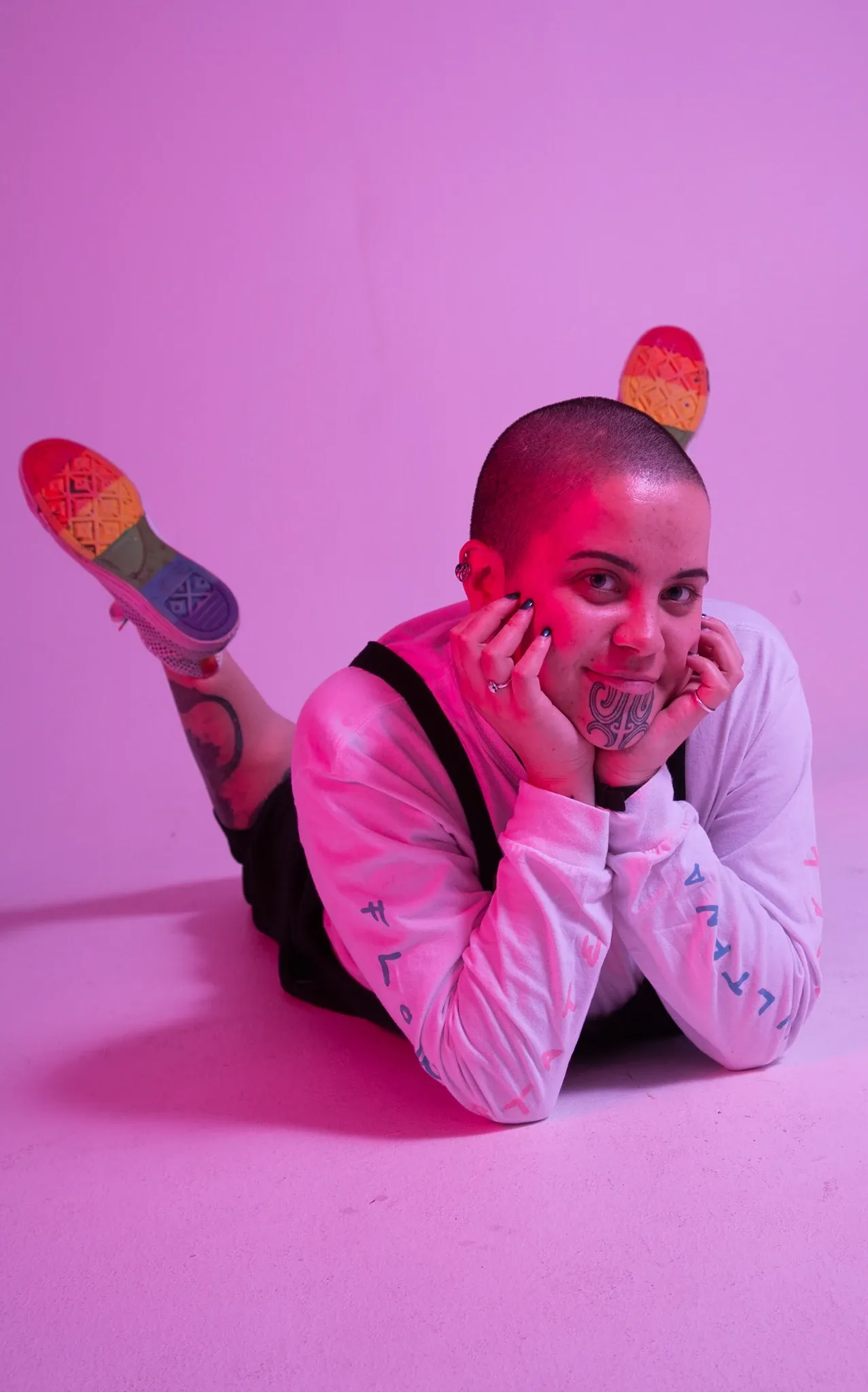
Shelley Te Haara. Photo: Shelley Te Haara.
They explain to TBI “I question how accessible it is going to be. Like, will this help me or the artists I manage? A lot of funding in the arts is so particular and restricted already, and essentially goes to the more established creatives.
“It really comes down to the application requirements. We don’t all have big numbers, our income isn’t necessarily consistent like it would be at a full-time job.”
Ufitia Sagapolutele, an independent choreographer agrees. “I feel that independent creatives really need financial assistance and support on navigating this new norm. I think, for one, the lack of financial assistance has been a huge deal.
“We’ve been forced to just find our own solutions and it’s already hard enough being independent. It just feels we were pushed to the side and not given any support during this time.”
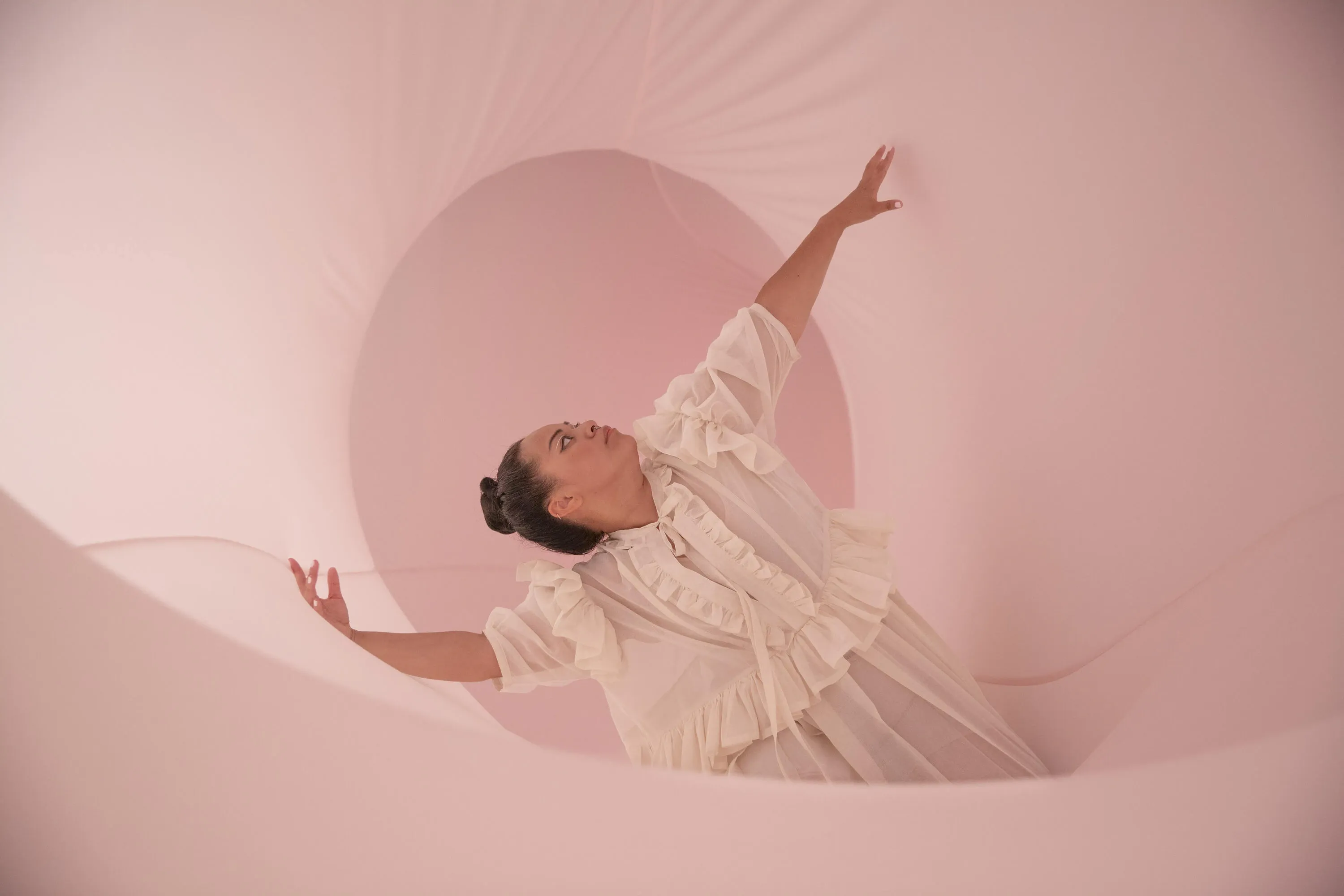
Ufita Sagapolutele. Photo: Supplied.
Having the voice of the independents amplified by the larger organisations has certainly helped - but one experienced advocate pointed out to The Lowdown that this hasn’t been an example of people lobbying on behalf of the independent artistic community, rather that they have been advocating together. Independent artists haven’t been sitting around waiting, they’ve proactively led this kōrero.
Ruka can’t see any reason why this shouldn’t be the norm. “I think the severity of the hardship for them this time round has tipped us over the edge to where there’s been no other option but to come together and be vocal for them. I want to see a reality where this is just expected from (organisations) and embedded into our kaupapa.”
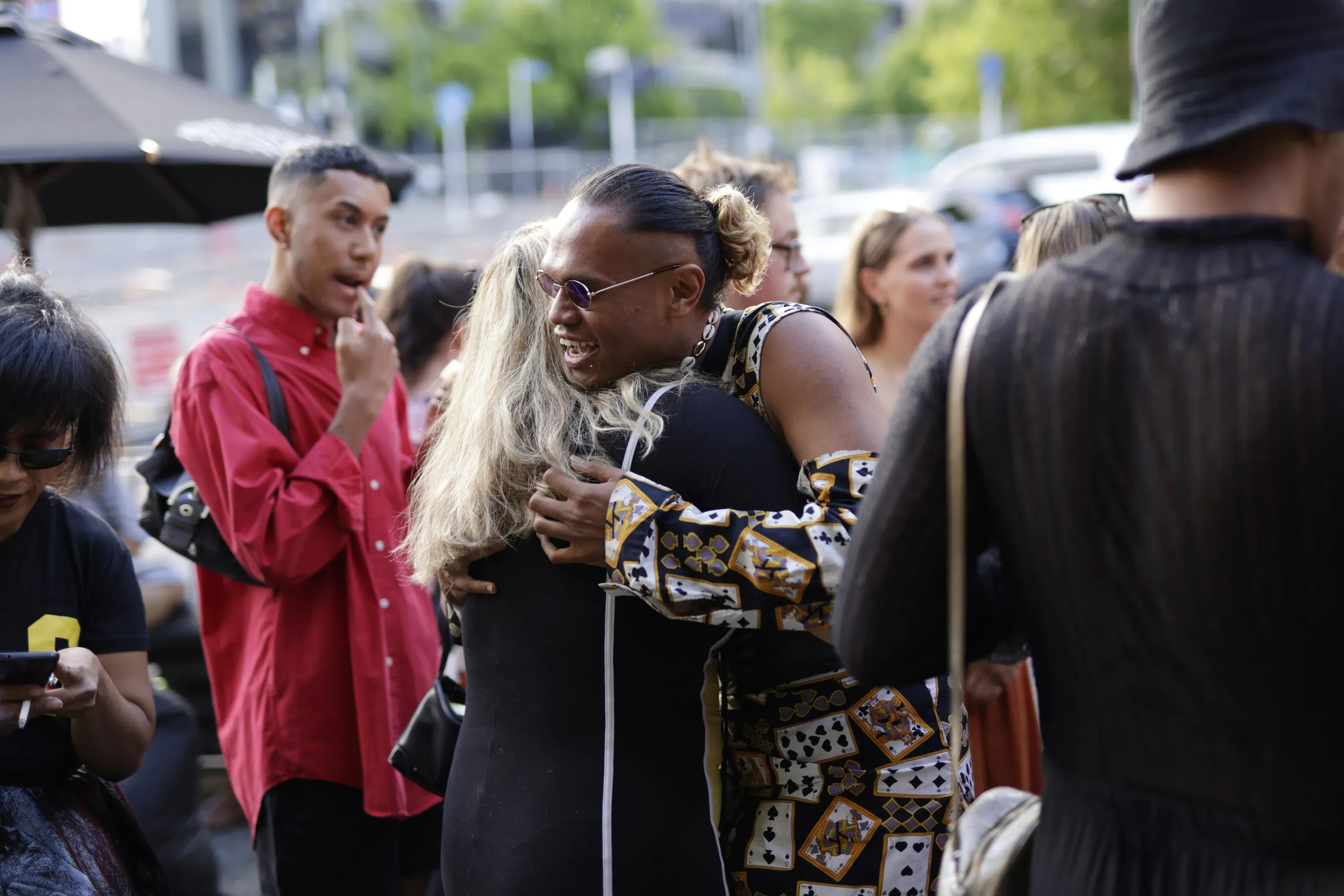
Basement Theatre's Opening Party 2021. Photo: Ralph Brown.
Te Haara feels there’s been a switch flicked during this latest lockdown that has led to a more united front. “without the independent artists, those large and small operators also couldn’t function. I think people are realising more how much all those little parts makes this big machine run. Without the artists, music labels and other organisations like that are pointless.”
So the question that needs asking..
What do independent artists actually need right now?
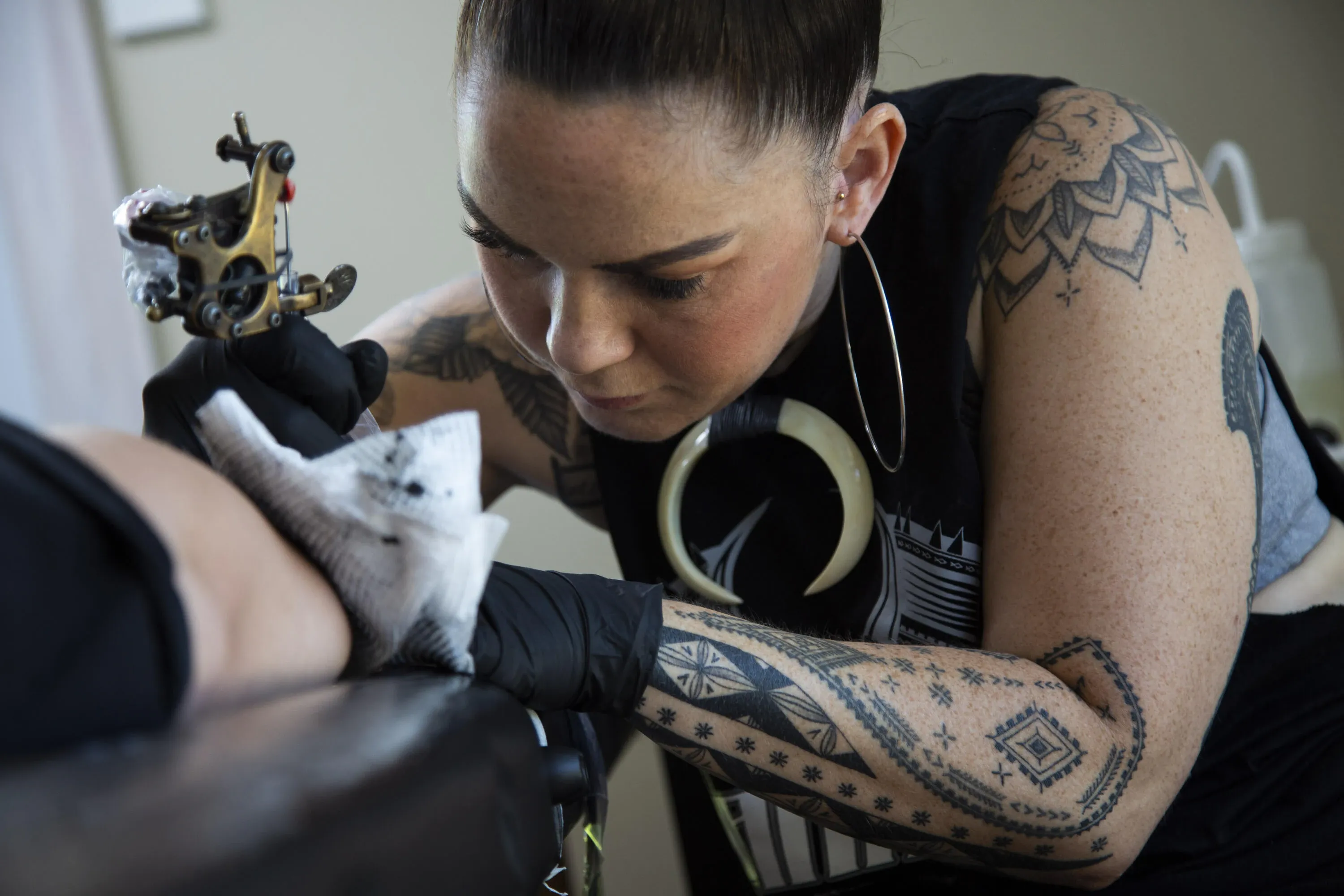
Tyla Vaeau. Photo: Cornell Tukiri.
Tatau artist Tyla Vaeau is one of many riding the emotional rollercoaster that is Lockdown.
“It’s important to take care of our indigenous practitioners whose mahi may fall outside of the usual “arts” funding, who aren’t aware of such funding or who may not tick all the boxes in a funding application – but whose work is invaluable to our cultural well-being.
“It’s such a new climate, my mahi cannot exist in the online space – it is a person-to-person practice, often with the whole aiga involved.
“Funding should focus on maintaining and strengthening creative practices during lockdown, rather than the creation of new work. The longer lockdown lasts, the further disconnected we become and I think we are still figuring out ways forward or even back to our practices. We need support, we need our communities.
Independent curator and producer Dina Jezdic works at the coalface of independent artists needing support with creative mentoring programme Toipoto.
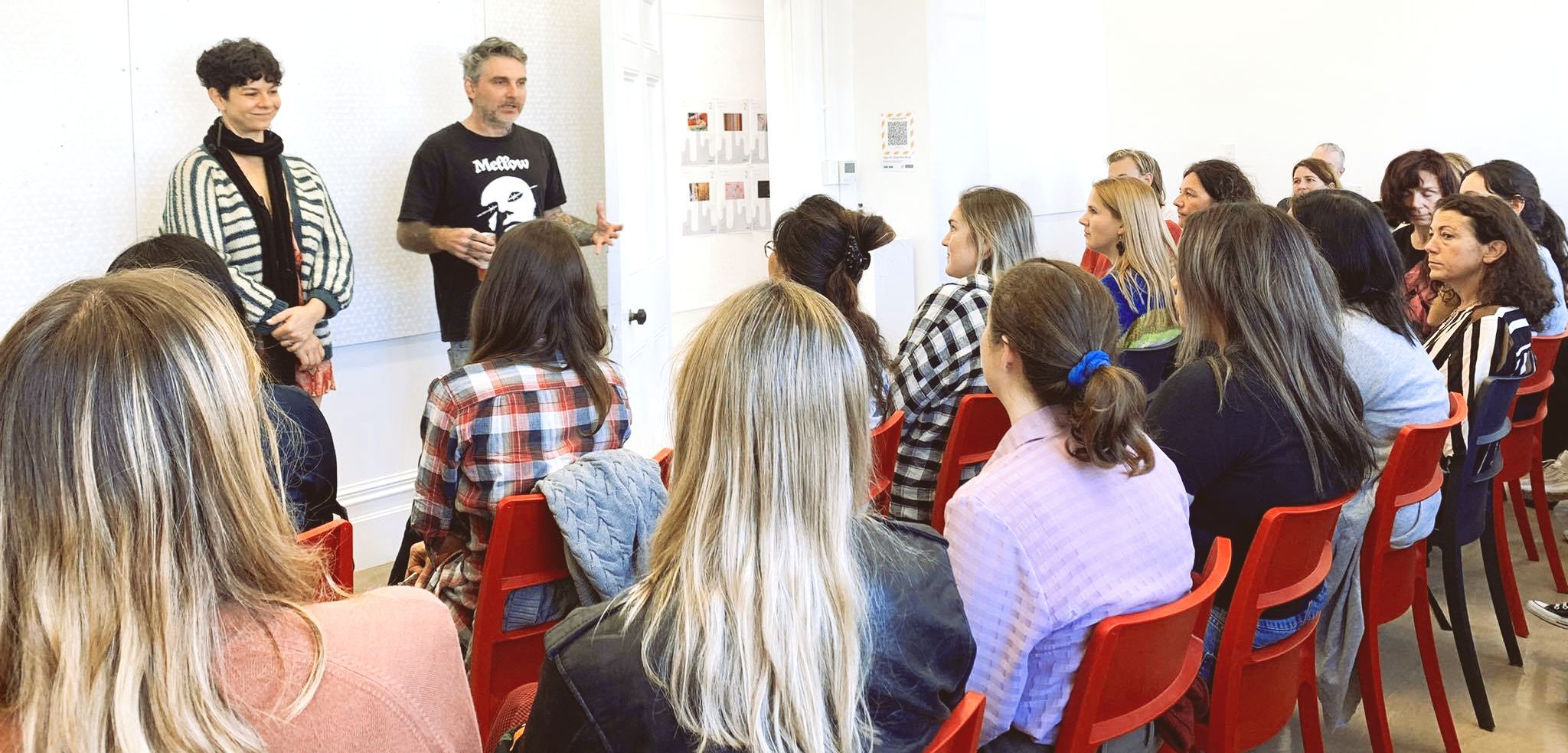
Dina Jezdic with fellow mentor Dominic Hoey addressing Toipoto cohort. Photo: Supplied.
“The new relief package is indeed a cause for celebration but the mahi doesn't stop here,” Jezdic declares. “For a lot of Toipoto artists that are just starting on the grant funding journey, this is a major barrier and the precise reason why they are looking for mentoring opportunities.
“It is definitely a step in the right direction and will no doubt encourage those that are about to apply for their very first time.
Accessibility is the key. Artists should be able to safely march into the future without having to jump through so many hoops. The grant pie is just not big enough.”
Sagapolutele adds “I think there needs to be more accessible resources and assistance for independent artists without all the barriers. We’re already facing being in this pandemic which is a big barrier itself.
“It shouldn’t be the case of putting in funding applications and going through all the hard work to then not get any help. We are struggling and we should be able to get the help and support that is needed for us to get through these times.”
Independent music producer Brandon Haru (Tainui, Ngāpuhi) admits “there are too many frustrations. There are mountains and mountains of frustrations.”
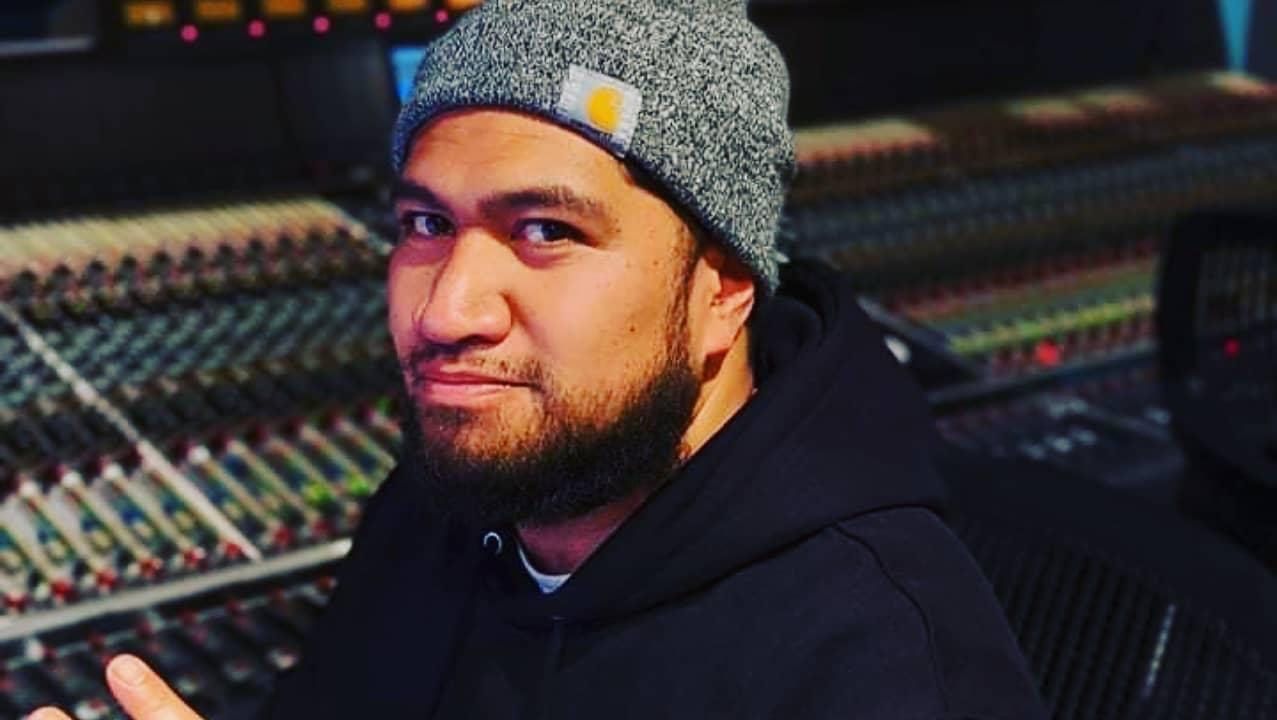
Brandon Haru. Photo: Supplied.
He tells The Lowdown “One thing I know is that in order for most musicians to create, they need the tools. And that’s where most of their money is spent, actually buying the thing that’s going to help them make the art. And currently, you can’t get funding for that.
“I also think there should be more diversity amongst the people who decide where the funding goes, what the criteria is, and how it’s spent. Informed by the creatives that the funding is supposed to serve.”
Ruka feels the entire arts funding model “needs to be completely flipped.”
She elaborates “It’s my opinion that independent artists in our country need and deserve access to an artist wage.
“Relief funds are great for crisis management, but we still need to address sustainability. If Aotearoa is a place that truly values the arts, then we need to ensure that artists at the very very least, can actually survive.”
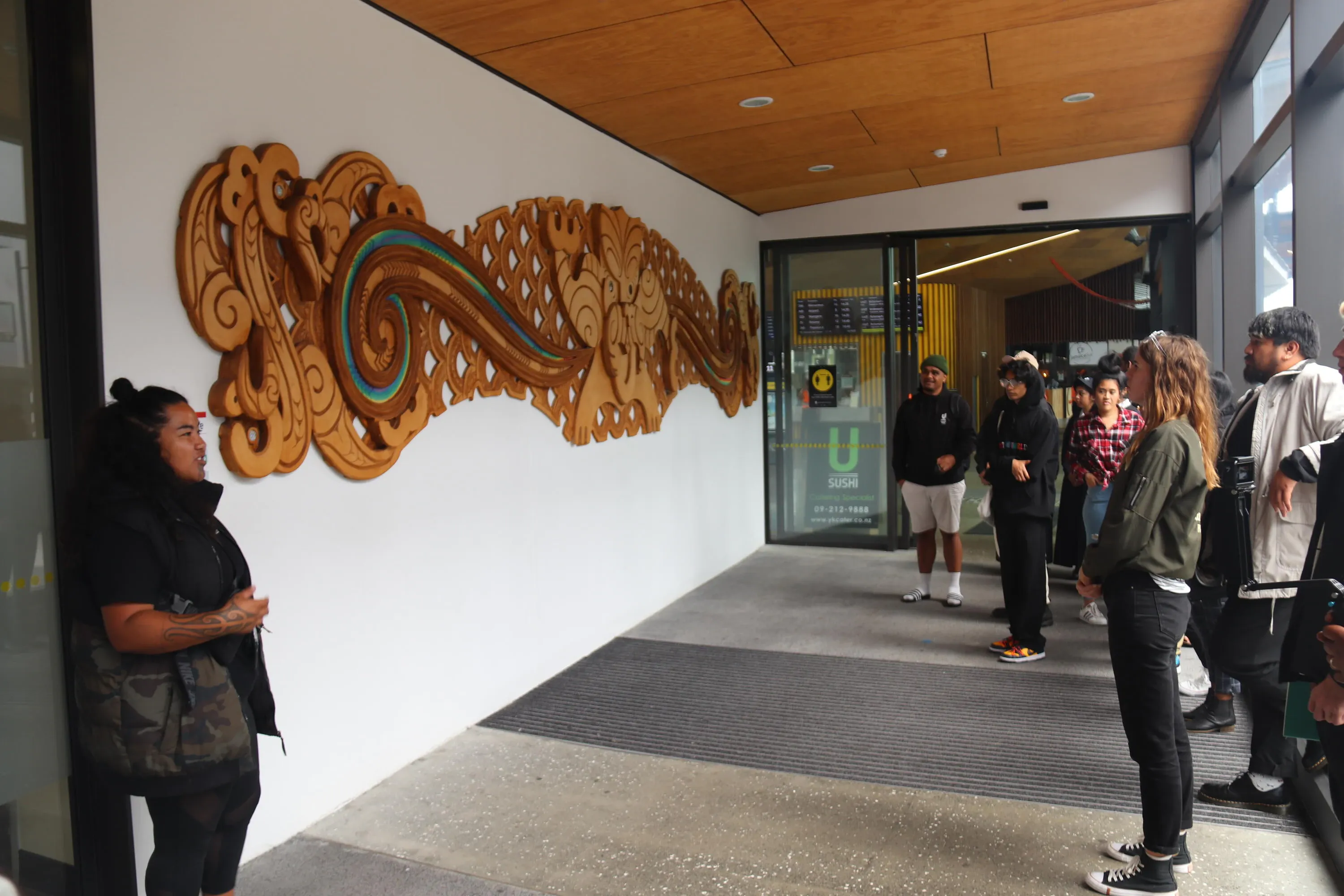
Amiria Puia-Taylor speaking with rangatahi. Photo: The 312 Hub and Waikare Komene The Roots Creative Entrepreneurs/Mau Studios.
As Director of independent arts business The 312 Hub, respected creative youth mentor Amiria Puia-Taylor (Ngāti Te Ata Waiohua, Ngāti Tīpa, Hāmoa, Kuki Airani, Tahiti) lays down the stark reality.
“Independents need regular, stable income support. One-off support offerings are helpful but not sustainable. Our organisation is only a Limited Liability, therefore we miss out a lot on access to funding because we aren’t set up.
"Most of my team will need to consider applying for the benefit next week.”
Time will tell what impact the Emergency Relief Fund will have - but it’s unquestionably a step in the right direction. These voices are finally beginning to be heard.
Long term forecast
While the independent community deserves to be in the spotlight - this support for the sector touches many corners of creativity.
The Lowdown reached out to some of the leading voices in the sector for their thoughts on the long-awaited announcement - and the general consensus is the long-term implications need to remain front of mind.
Blumhardt Foundation chair and NZ Fashion Museum trustee Philip Clarke tells The Lowdown “it isn’t surprising that those parts of the cultural sector that were under strain before the pandemic are now under intolerable strain. The Emergency Relief Fund is some recognition of this and no doubt the result of powerful advocacy, congratulations to those responsible. This is a short-term step.
“We’ve seen MCH change from largely being a remote funding conduit to an engaged major funder. This indicates an early acknowledgment that we quickly needed a lot more than the existing cultural apparatus and approaches to get us through.
“I think it’s time for a major audit and reprioritisation that considers the why, how and who of contemporary Aotearoa NZ culture, and the resources that are required for us to be both culturally democratic and resilient.”
The money being used in the $37.5 million relief package was originally left in the overall Cultural COVID recovery programme for use in 2022-23, which will at some point have implications.
Senior Creative NZ staffer Cath Cardiff points out “you have to address the immediate problem, you don’t have a choice. If someone comes in to be triaged, you don’t say you’re going to save your resources for someone else later - you do what you can at the time.
“The point about the long-term impact is very acute and that is very much on our mind as well - which is why some of this funding (the $5 million allocated to CNZ) will be used to top up a resilience fund for our investment clients.”
Louise Gallagher, CEO of Performing Arts Network NZ (PANNZ) acknowledges the funding is more of a bandaid reaction than focused on transformation and thriving, but applauds the moves to ensure “people will not be lost at sea in all of this.”
She tells The Lowdown “everyone in our industry has been impacted and has taken some sort of hit - that is a given. So let us remember to be human and recognise the toll it has taken on every single one of us who have the privilege to work in an industry that gives a damn about life and art.
“We are an ecosystem with a large number of nuances - which recognises that we are all interdependent of each other. We need to support the decisions of others, even if we think things could be done another way.
“For the large part, we have some really great hearts and minds working across our sector - in our funding institutions, our independent sector, our arts supporting agencies, our funded companies, our venues, our festivals and our arts media.
“Let us all remember that everyone is doing their best and trying to make the right decision for us all. Pulling together is important now, not to pull apart others because of resource - at a time when there has never been so much actual money funnelled into the arts.
“The question is not if we approve of the way the funds are distributed but what part can we all play to ensure we are uplifting others in their endeavours?”
How's your hauora?
Has there ever been a time where we are more attuned to the importance of mental health?
The physiological fatigue that has hammered relentlessly at virtually everyone in the past year and a half has led to an unparalleled openness in discussing our mental wellbeing and tackling the issues that used to go unspoken.
There have been some important spotlights shining in the arts during Mental Health Awareness week.
Novelist Rosetta Allan discusses her own journey on “being mentally unwell, trying to get well” on Reading Room, while Arts Council Chair Caren Rangi expresses the importance of culture on wellbeing on Stuff.
Here on The Big Idea, The Beths guitarist and producer Jonathan Pearce opened up to Chris Forster about the toll lockdown is having on him and there are some timely tips on looking after your mental health with Toipoto guest speaker Ramon Narayan.

Jonathan Pearce. Photo: Tristan Deck.
Long-time and vocal advocate for hauora/wellbeing in the creative sector Borni Te Rongopai Tukiwaho has launched a collection of resources to support this mahi - Te Whakawhirinaki Kete (TWK).
His passion on the topic is undeniable - Tukiwaho telling The Lowdown arts practitioners are tenacious, even the face of COVID’s “insurmountable” impact.
“There are some incredible initiatives happening and there seems to be a clear aim to advocate, create better capability responses and build strong platforms. I see it happening. I applaud the brilliant work that's been ignited, but I still have questions.
“Intentions are not enough.
“Continuous written surveys targeted at only a small section of our sector is not advocacy. I believe there's a disconnect between the high level, research advocacy spaces and the independent, grassroots members of our sector. Yes, within the funding space but especially when surveying our arts landscape and holding the hauora of our people.
“We need better hauora intervention! It's time to stop being reactive. Stop being the ambulance at the bottom of the cliff. Reach out and get better consultation, start to forecast and implement mitigation tools and activate.
“To those who are holding the cards - stop talking about and researching what change looks like, and start doing something that actually makes a difference to those who feel unseen and ignored.”
The Big Idea has heard of far too many cases of creatives confronting some pretty serious mental health issues over Auckland’s extended lockdown. Having lives and livelihoods fall apart, work postponed or cancelled, and feeling cut off from your community are all factors that cannot be underestimated.
More should be done - but in the meantime, if you or someone you know is struggling, then reach out for help. There is a list of helpful resources here in our Lessons for Lockdown.
You are not alone.
Ka rawe!
Some talented wāhine toa have been making arts headlines this week.
Māori creatives have become the first to receive a joint doctorate in mahi raranga or traditional weaving.
RNZ reports Jacqueline McRae-Tarei, Gloria Taituha and Rose Te Ratana studied and recreated mahi raranga from the 1800s on to the present - and future.
Taithua explains "the idea was to have a joint project where each individual component could be individually assessed and stand on its own, while there would be an overarching narrative developed and synergies available through doing a collaborative project."
And novelist/playwright Whiti Hereaka (Ngāti Tūwharetoa, Te Arawa, Tainui) has been awarded the New Zealand Society of Authors Peter and Dianne Beatson Fellowship.
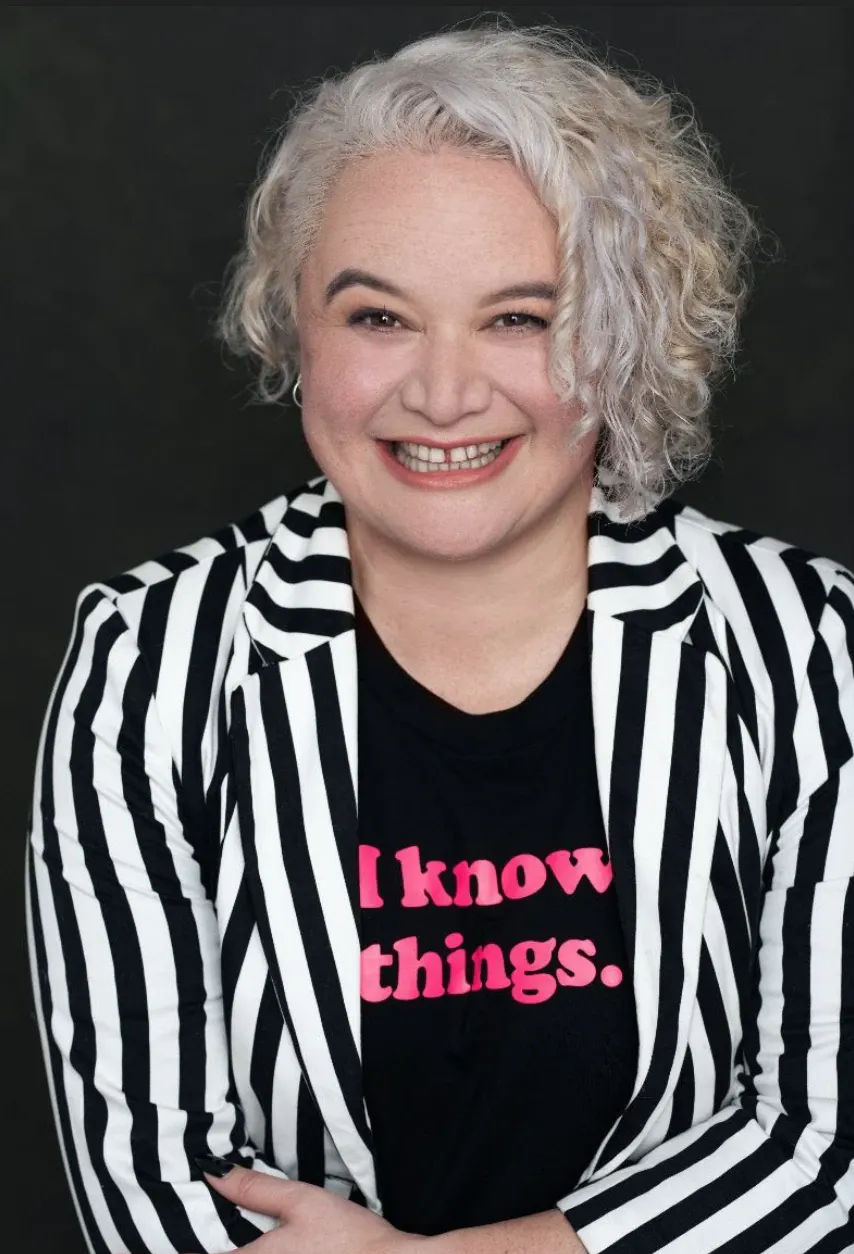
Whiti Hereaka. Photo: Tabitha Arthur.
The $10,000 prize is awarded annually to a NZSA member working on a new fiction, non-fiction, poetry or drama project.
Hereaka says “it is lovely to know that my work is appreciated and supported, especially when I feel like I’ve been in the mid-career doldrums.
One of the strange conundrums of a career in writing is that as you progress it seems to get harder to find the time to concentrate on writing. The stipend attached to the fellowship gives me my writing time back.” She plans to work on her next novel, Ariā, over summer.
Halfway(ish) down Dominion Road
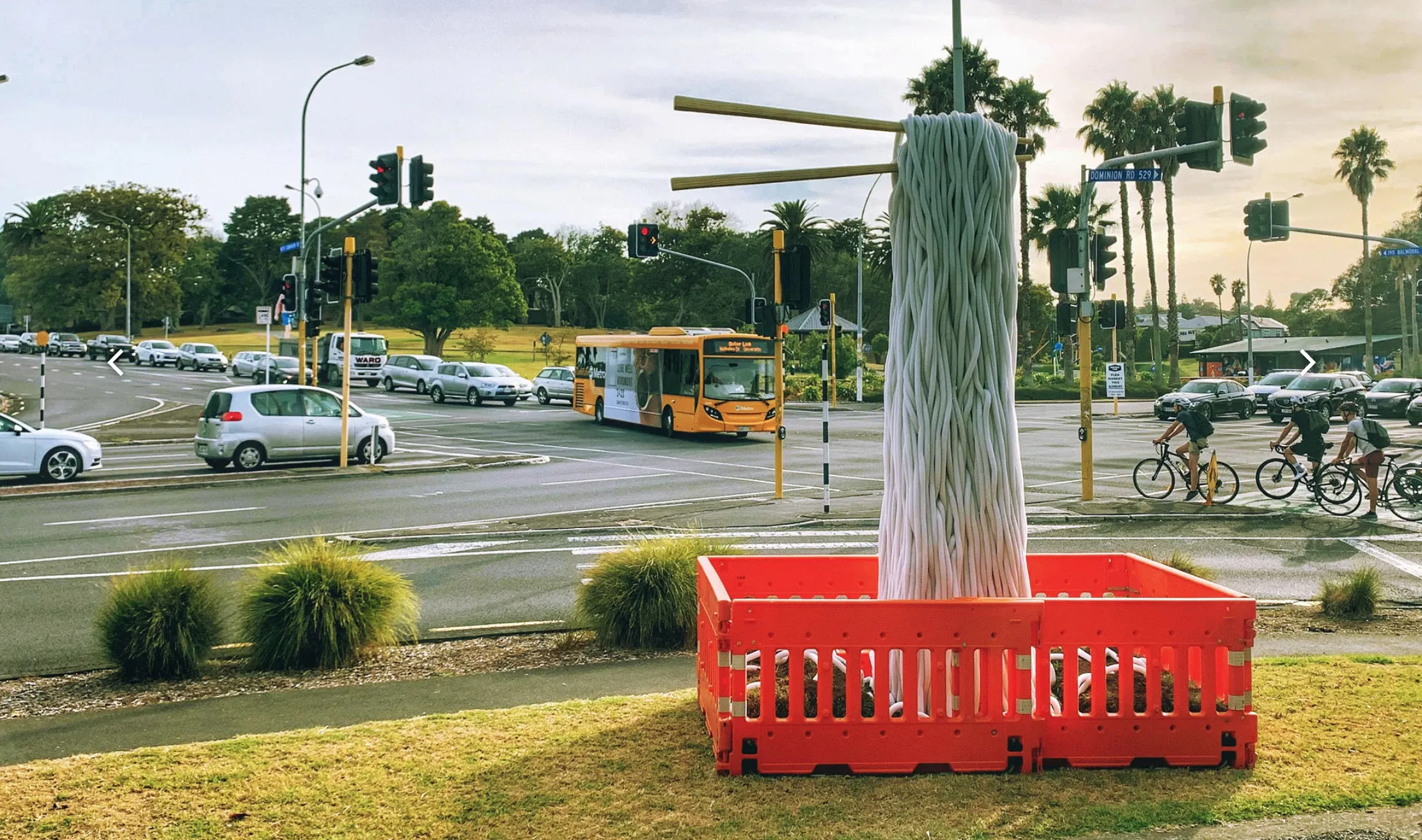
OnDo by Seung Yul Oh. Photo: Auckland Council Art Collection.
It was only supposed to be on display for anywhere between one and five years - but even though it’s well outlived its life expectancy, a popular public artwork comes down today.
OnDo by sculptor Seung Yul Oh has livened up the main intersection on Auckland’s Dominion Road since 2015, with “larger-than-life noodles and a pair of chopsticks, which appear to be magically rising from the orange safety barriers of a roadworks site”.
The decision to decommission the work was made in consultation with the artist due to materials deteriorating. If you’re looking for inspiration in your lockdown walks, other impressive installations from Oh around Tāmaki Makaurau can be found here on the Auckland Public Art website.
